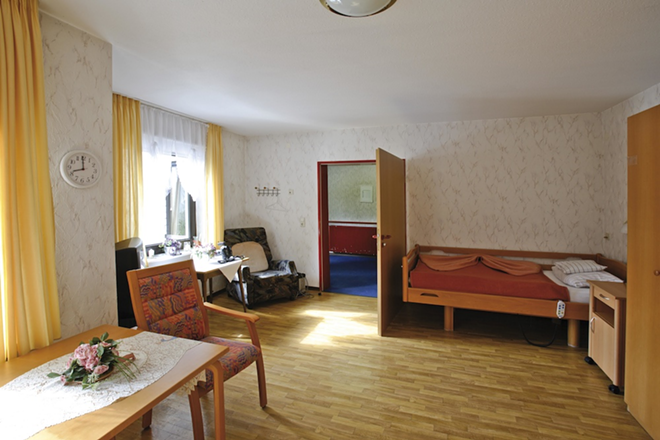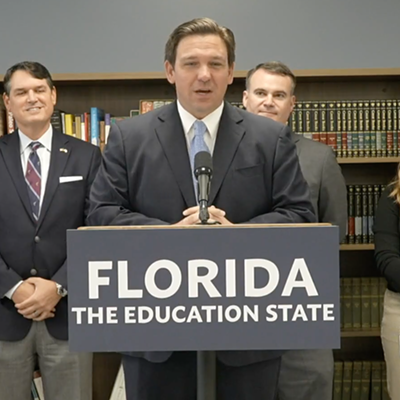Time is ticking for the state’s long-term care providers to comply with a requirement to have backup generators and fuel or face fines or even the possible revocation of their licenses.
The backup emergency-power mandate was approved in state rules more than two years ago, after residents died at a Broward County nursing home following Hurricane Irma in September 2017.
But as the 2019 Atlantic hurricane season drew to a close last week, state data showed that less than half of the nursing homes in Florida had obtained the state and local approvals needed to be deemed fully compliant with the mandate, which requires nursing homes and assisted living facilities to be able to keep residents cool for 96 hours during a declared state of emergency.
While regulators, long-term care providers and engineers agree that the permitting and approval process associated with the backup generators is laborious, Agency for Health Care Administration Secretary Mary Mayhew told lawmakers in September that she is hesitant to continue approving variances to give the facilities more time to comply.
“What I have conveyed and will continue to convey to the nursing homes and the assisted living facilities is, now is the time to get this done,” Mayhew told senators during a September committee meeting, adding, “I am reluctant to approve any variances beyond the end of this year, and we are communicating that.”
Mayhew reiterated that sentiment in a statement Monday to The News Service of Florida, saying, “the agency’s goal is full compliance,” and that “facilities that fail to come into compliance will be held accountable.”
Florida has 686 nursing homes that combine to offer 83,889 beds.
Florida has two websites that track the backup generator requirements. One website tracks compliance with the rules, the other website tracks nursing home generator status.
State data on rule compliance indicates that 336 of the nursing homes --- or about 49 percent --- have complied with the generator and backup fuel requirements. To be considered fully compliant, a nursing home must have a generator and obtain the necessary permits from the local government, receive approval from the local emergency management agency and receive approval from state health-care regulators.
Another 41 percent of the nursing facilities, or 284 homes, have obtained variances from the Agency for Health Care Administration, granting them additional time to comply with the mandate. Those 284 nursing homes have a combined 35,603 beds.
To obtain a variance, a nursing facility must prove to the state that it either has a temporary generator onsite, can have a generator delivered or has a full evacuation plan in case of a declared emergency. But those facilities don’t have final regulatory or permitting approval.
Sixty-six nursing homes, meanwhile, did not have permanently installed generators and did not have variances from the law as of Tuesday.
Combined, those facilities account for 11 percent of the nursing home beds in the state.
Kristen Knapp, a spokeswoman for the Florida Health Care Association, said having fully approved emergency backup-power plans isn’t what’s important. Instead, she said, the focus should be whether facilities have the ability to keep residents cool in case of power outages.
The website that tracks generator status indicates that most of them do.
“The question should not be about variances and whether the paperwork is all complete, but can a nursing home meet the cooling requirements of the rule,” she said in a statement to the News Service.
Aside from the nursing homes that have met the requirements, Knapp noted that another 225 nursing homes have generators onsite but don’t have final approval from state and local regulators.
Meanwhile, 93 percent of assisted living facilities have come into compliance with the mandate. Because the facilities are smaller, the structures need fewer changes to accommodate generators. Therefore, it’s easier to comply.
Former Gov. Rick Scott promised a hard line against nursing homes and assisted living facilities after the deaths of as many as 12 residents at The Rehabilitation Center at Hollywood Hills in following Hurricane Irma.
The hurricane knocked out the nursing home’s air-conditioning system, leaving residents in sweltering conditions for three days. Following a spate of negative national headlines, the Scott administration swiftly moved to approve a pair of emergency rules to require nursing homes and assisted living facilities to have generators for cooling.
But the emergency rules sparked successful legal challenges from some industry groups that were concerned about the potential costs associated with the requirement and unreasonable time frames.
Eventually, the Scott administration met with industry representatives to hammer out an alternative pair of rules. Because of the steep costs associated with the requirements --- legislative staff estimated industry-wide costs for nursing homes and assisted living facilities to be $121.3 million and $243 million over the first five years, respectively --- the rules required legislative ratification.
The ratified rules require facilities to be able to keep nursing home residents cool for 96 hours. Moreover, the facilities need to store onsite 72 hours of fuel.
Nursing homes and ALFs were required to meet the regulations no later than June 1, 2018, but the rules authorized the Agency for Health Care Administration to grant extension up to Jan. 1, 2019. Facilities requiring additional time beyond that were required to obtain variances.
Agency for Health Care Administration spokesman Patrick Manderfield said the state has levied fines against more than 280 facilities for failing to comply with the rules or obtain variances.
“Additional penalties will be levied as warranted,” Manderfield said in a statement.
Skip Gregory, owner of Tallahassee-based Health Facility Consulting, attributed the slow compliance rate to a variety of factors, from unrealistic deadlines in the rules to confusion for engineers and state and local planning officials to the vendors responsible for making the generators.
“We all knew this was a can of worms,” said Gregory, a former health care regulator who has been working with providers to come in line with the requirements.
Brian Lee, who runs the advocacy group Families for Better Care, praised the Scott administration for pushing for the cooling requirements and is frustrated with the state’s progress to date.
“It’s been more than two years. We can build skyscrapers in that amount of time,” said Lee, a former Florida long-term care ombudsman. “Enough with the excuses. Let’s get this done for the residents.”
Follow @cl_tampabay on Twitter to get the most up-to-date news + views. Subscribe to our newsletter, too.

















